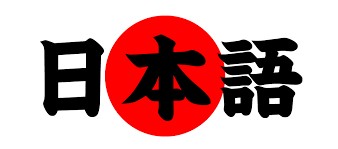Learning the Japanese language isn’t an easy task, so I commend you for wanting to try it out.
There are ‘ways’ and there are ‘best ways’ to study something. The Japanese vocab and kanji are known to be stressful to learn but they are considered to be the necessary foundation for learning the Japanese language and so, there is no way you can escape learning them. Your first 1-2years of learning Japanese, you basically concentrate on learning Japanese grammar but thereafter, you move onto the Japanese vocabulary and Kanji, memorizing every word one after the other because you need to.
The Japanese language, just like any other language is made of 1000s of words/ vocab, and so, in order to become really fluent in this language, you must know about 10,000 words and more, while to become conversational, you must know at least 2000 words. That is a lot to learn. No wonder it takes so much time to become completely familiar with each Japanese vocab and kanji character.
Kanji, on the other hand, is probably the hardest part of learning the Japanese language. The fact that you are intentional about studying it shows that you are a serious learner. In order to be able to read or write Japanese fluently, you may need to know between 1000-1500 kanji characters.(N3 to N2 )
How then do you learn this many words and characters without losing your mind? The best way is to try out different methods and strategies you know and then, stick to whichever method that works best for you.
Here are some of the best ways to study vocab and kanji.
Create your own study list and set study goals
This strategy will help establish a good foundation for your mind and brain to cooperate and absorb every information you take in. When setting your study goals and creating your study list, be sure to be realistic about what you want to learn and how you intend to go about it. For example, you can decide to learn 100 vocab and 30 kanji in 2 weeks. That’s a pretty achievable goal. To help your study process, write down all the 100 vocals and 30 kanji out and practice them at your set study time. This is definitely convenient than trying to learn everything thing you see in your study materials.
Start reading
Read any material written in Hiragana, Katakana, and Kanji that you can get your hands on. When reading you are consciously attracted to the content of the material but subconsciously, you get to learn more words and kanji characters. To stay interested, you can read materials like comics, magazines, and novels. Also, cartoons and movies with subtitles can help you learn as well. Unless you read and see either kanji or vocab in context, you may never really learn and understand how to use them in real-life situations when you need to write or speak the words yourself.
Write down vocab and kanji in your own handwriting
Learning both vocab and kanji the old school way is the best study trick to remember each character including kanji‘s correct strokes. This is because writing down things has a positive impact on your memory.
Engage spaced repetition system (SRS)
Spaced repetition system (SRS) is a learning technique used for reviewing whatever you’ve learned at increasingly spaced intervals to ensure that you don’t forget it. This technique causes you to encounter words or information just at the right time to help you remember it. There are a few tools associated with spaced repetition system that can help your vocab and kanji study. These include:
flashcards
Flashcards are one of the best ways to learn the Japanese language. This method has proven to be easy to use, and effective when used. You can easily bring out a flashcard to learn the vocab or kanji written on them or check up what you are almost forgetting. Another good thing is that you can create your own flashcards by writing down every vocab or kanji you want to learn or remember on them.
Anki
This is the software version of the physical flashcard. When you study with the Anki app, it automatically cycles through your flashcards and shows you a mix of old and new information each day.
Ask for help from native speakers
What better way to learn than to allow natives to teach you? These native speakers grew up speaking, reading and writing the Japanese language and so, engaging in conversation with them will help brush up your vocab and kanji skill. They may teach you what you need to know in an unconventional way but at least, the information is made available to you in a way that you will understand and may not easily forget.
Review your study materials endlessly
You don’t need to get stuck when learning before you go back to your study materials. Set time aside to go over everything you have learned. You can even set a test for yourself to know how far and how well you’ve come. Both Japanese vocab and kanji requires lots of time and practice consecutively before you can achieve any form of fluency. Therefore, take your time and don’t rush your study process.
Make the Japanese Wiktionary your buddy
Apart from the fact that it comes in handy, the Japanese E-dictionary has proven to be efficient and effective for learning the Japanese language. Its features include the following:
- Handwritten input which enables you to learn how to write the strokes of difficult kanji
- Voice recognition dictation
- Pronunciation function
- A backlight screen and high resolution that makes it easy to read more complex kanji.
In conclusion, studying and learning the Japanese vocab and kanji is the basis for learning to speak the Japanese language as you will become familiar with words, pronunciations and how to apply them in real-life conversation. Hence, don’t forget to set study goals, create study list, read, write, practice and review everything you need to in order to achieve the level of fluency you desire.

